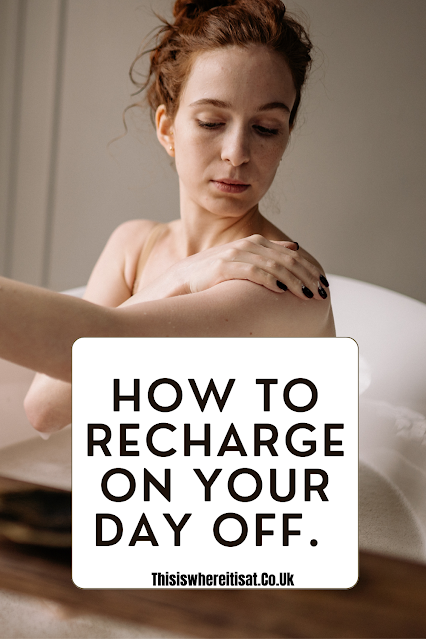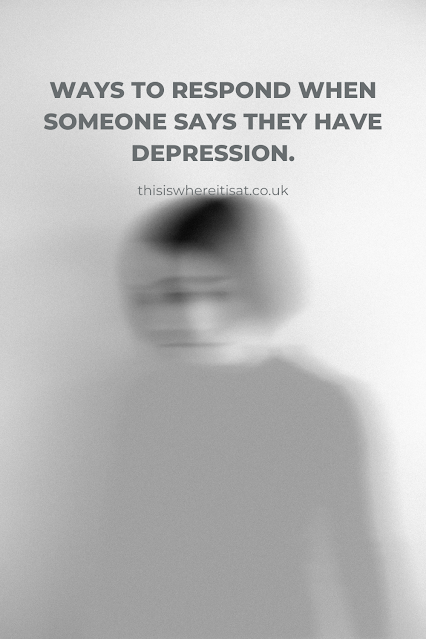Friday 29 December 2023
Compulsive Online Spending: Breaking the Cycle
Monday 25 December 2023
Beating the Christmas blues.
Monday 28 August 2023
5 benefits of journaling.
Sunday 30 July 2023
Friday 21 July 2023
A to Z of self care.
Monday 17 July 2023
The benefits of unplugging from technology
Friday 20 January 2023
How to recharge on your day off.
Hey readers,
Everybody anticipates their days off. We look forward to having a day off, whether a weekend, personal day, or vacation, and we count down the minutes.
Unfortunately, vacation days sometimes fall short of our expectations. Have you ever left work feeling drained and harried, more eager to take a break than ready to take on the day's new challenges? To learn some advice and activities to recharge on your day off, continue reading.
1. Make your bed.
After moving into my apartment this past fall, I had fresh bed linens, an early wake-up time, and a headboard for the first time in years. Given that I left my bed in the same tattered heap it was in when I got up, why was I treating my space like a college dorm room?
I've made a conscious effort over the past few months to make my bed as soon as I wake up. I've never developed a habit for which I am more grateful at the end of the day.
Making my bed is one of the quickest tasks as it doesn't take long. All I have to do is make sure the quilt and pillows are puffed up and straight on my bed.
Although it initially appeared absurd, who will check my room when I'm gone all day? Making your bed when you get home helps you feel better after work.
Now, instead of being distracted and excessively irritated by an untidy atmosphere when I return home from a long day at work, I can enter my room and feel put together.
Making your bed in the morning might help you start the day off feeling focused and orderly.
2. Get ahead.
Use your additional day to catch up on work, housekeeping, errands, paperwork, doctor's appointments, haircuts, manicures, and other obligations before taking a break.
Long-term stress reduction will result from it, and you'll feel more productive and self-assured in the near term. Using your day to get ahead is always a good idea in the long run—you'll thank yourself later, provided you are not exhausted.
3. Go for a walk.
Take a stroll through your neighbourhood, the park, a garden, or any other tranquil area nearby. Walking is terrific exercise and a great way to unwind and reflect.
4. Take some time offline.
Consider this: when was the last time you went a whole day without using the internet? That entails avoiding work-related emails, social media, messaging, and applications.
For many of us, the internet permeates every aspect of our lives. And even if it is beneficial to feel connected and current, it also means that you can only partially unplug.
So why not disconnect from the internet? You should entirely cut yourself off from the internet on your next day off.
Turn off your Wi-Fi, put your phone in aeroplane mode, and block all temptations from the internet from your line of sight.
Instead, focus on offline hobbies like reading or creative pursuits like drawing.
5. Watch your stimulant and alcohol use.
We frequently turn to caffeine or alcohol when worn out, stressed out, at ease, or celebrating.
While most individuals will agree that enjoying things in moderation is acceptable,
overindulging can eventually result in health problems. If you're feeling lethargic and reaching for your fourth coffee of the day, a glass of water, a quick walk, or some sleep will better treat the underlying issue.
What do you find helpful to recharge on a day off? Love to hear your thoughts in the comment section down below.
Cheers for reading X
Friday 13 January 2023
Ways to respond when someone says they have depression.
Hey readers,
You will likely come into contact with someone who battles depression at some point.
.
If a friend or member of your family has opened up to you about their depression, you probably want to know how you can support them.
When someone opens up to you about their mental health, responding constructively is crucial because depression is a severe illness.
We're here to assist by demonstrating how to react when someone discloses they have depression. Do you wish to discuss it? When you're ready.
1. I'll be here.
Although you can't make someone talk, letting them know you're there for them can make them feel supported.
You should remark you've noticed they're having a hard time, and you're available if they want to talk if they haven't been open with you about their melancholy.
If you merely ask them, "Are you OK?" they may already be accustomed to acting fine and say, "I'm fine."
Tell them you'll be there for them when they're ready to chat if they're not ready right away.
They might consider your offer and come to you when they are struggling and need someone to discuss their issues.
2. Offer a silent embrace or hug.
Silence is a vital tool that may acknowledge the gravity of a situation without adding to it.
Hugging or holding their hand might be a soothing act if you have a close relationship with someone.
Sometimes, nothing more than your presence not your words is required.
3. Take as much time as necessary.
Even seemingly simple things can feel daunting to someone experiencing severe depression or simply in a terrible mood.
Even simple tasks like cooking or taking a shower may seem overwhelming, especially in the morning.
Giving them more time to do these duties is a good idea because many people with depression experience mood improvements as the day draw to a close.
4. Try to have these discussions face-to-face.
Although it's acceptable to have these chats over the phone or via text, speaking in person is much more helpful.
So much is lost through texting in terms of tone and harshness. You could suggest they pick up the phone if someone texts you and admits they're depressed. As previously mentioned, you could also call them right away.
Feeling burdensome is a sign of depression, so even if someone wants to talk on the phone, they might hold off because they don't want to feel like an imposition.
Alternatively, reply to their SMS with a statement that you care about them and are open to a face-to-face conversation.
What suggestions would you give to speak to someone with depression?
Love to hear your thoughts in the comment section down below.
Cheers for reading x
Hello!
 Thank you for coming by! This is my blog where I write about a range of topics such as motherhood, autism and lifestyle. Come along for the ride.
Thank you for coming by! This is my blog where I write about a range of topics such as motherhood, autism and lifestyle. Come along for the ride.












.png)
.png)
.png)
.png)
.png)
.png)









